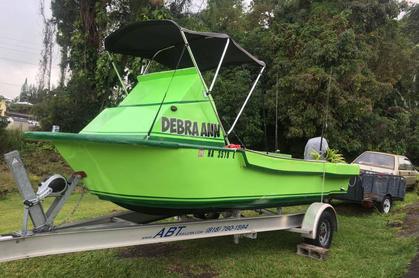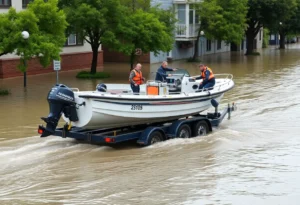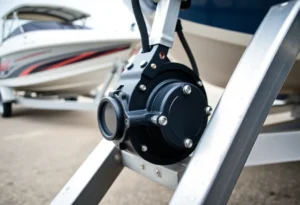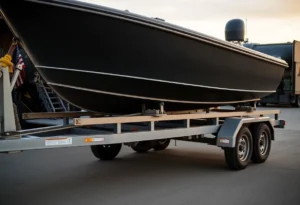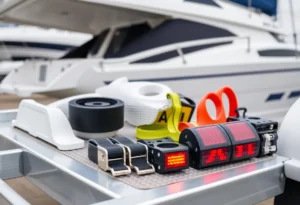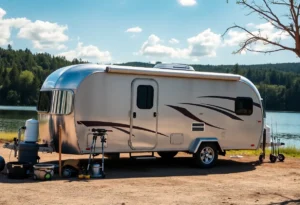If you own a boat, chances are, you’ve invested in a good-quality boat trailer to transport it to and from the water. But like any equipment, trailers need regular maintenance to ensure they stay in great shape and provide safe, reliable towing. Whether you’re taking your boat out for a weekend in San Francisco Bay or navigating the waters around Seattle, keeping your boat trailer in top condition is crucial.
In this blog, we’ll share some expert tips for maintaining your boat trailer throughout the year, including some location-specific advice for those dealing with coastal conditions.
Why Trailer Maintenance Matters
Your boat trailer works just as hard as your boat. It takes on the brunt of the load during transport and deals with a variety of weather and environmental conditions. Proper maintenance ensures not only the safety of your boat but also your vehicle and anyone else on the road.
By performing regular maintenance, you can:
- Avoid costly repairs
- Extend the life of your trailer
- Prevent accidents caused by trailer malfunction
- Ensure smoother towing and better fuel efficiency
Whether you’re traveling along the coast from Marina del Rey to San Diego or heading inland to San Bernardino, these tips will help keep your trailer road-ready.
Key Areas to Focus On
There are several critical components of your boat trailer that require regular attention. Let’s break down each area so you know what to look for.
1. Tires and Wheels
Tires are one of the most important parts of your trailer, and they experience a lot of wear and tear. Regularly check the tire pressure to ensure it’s at the manufacturer’s recommended level. Underinflated tires can lead to poor fuel efficiency, increased wear, and even blowouts, which can be dangerous, especially if you’re towing long distances like from San Francisco to Seattle.
Additionally, inspect the tires for any signs of damage such as cracks, punctures, or uneven wear. If you notice any problems, replace the tires immediately.
Don’t forget to check the condition of the wheels and hubs. Make sure the wheels are properly aligned and the lug nuts are tight. If you boat frequently in saltwater, particularly in areas like San Diego or Marina del Rey, salt can corrode the wheels, so it’s essential to rinse them after each use.
2. Brakes
Trailers that carry heavier boats often come with electric or hydraulic brakes, which help improve stopping power when towing. Regularly inspect the brake pads, rotors, and drums for wear and replace them as needed. Check the brake fluid levels for hydraulic brakes and top them off if necessary.
For boaters in hilly areas like San Bernardino or those who travel through steep coastal regions, having reliable brakes is particularly important.
3. Bearings and Axles
The wheel bearings are crucial for smooth towing. Without proper lubrication, the bearings can seize up, causing the wheels to lock, which can lead to dangerous situations on the road. Grease the bearings regularly, especially if you’ve been towing your boat through saltwater.
Axles also need to be inspected for rust and damage. For those boating in areas like Seattle, where the climate can be damp and rainy, keeping your axles rust-free is critical. Lubricating the axles and regularly checking for signs of wear can help prevent breakdowns.
4. Lighting System
Trailer lights are required by law and essential for safe towing, especially at night or during foggy weather. Inspect your lights before every trip, ensuring that all the bulbs are functioning correctly.
Check the connections and wiring for any fraying or corrosion, which is common after exposure to water. For saltwater boaters in places like San Diego or Marina del Rey, it’s essential to rinse the trailer lights after every use and inspect them regularly for saltwater damage.
5. Bunks and Rollers
The bunks and rollers on your trailer support your boat during transport. Over time, these components can wear down, especially if they are frequently submerged in water. Check for cracks, splits, or other signs of wear on the bunks and rollers.
Make sure the bunks are adjusted properly to avoid putting undue pressure on the hull. This is especially important for custom trailers designed to fit specific boat models. In locations like San Francisco and Seattle, where rough seas and ramps can be common, having well-maintained bunks and rollers will protect your boat from damage.
6. Winch and Strap
The winch is what helps you load and unload your boat from the trailer. Regularly inspect the winch and strap for signs of wear. If the strap is frayed or showing signs of weakening, replace it immediately.
Lubricate the winch to ensure smooth operation, especially if you frequently launch your boat in saltwater. Salt can quickly corrode the winch mechanism, making it difficult to operate.
Maintenance for Saltwater Boating
If you’re launching your boat in saltwater, whether it’s off the coast of San Diego, Marina del Rey, or anywhere along the California coast, your trailer requires even more attention. Saltwater is highly corrosive and can cause significant damage to your trailer if not properly cared for.
Rinse After Every Use
Saltwater can quickly rust the metal parts of your trailer. After every outing, thoroughly rinse your trailer with fresh water, paying particular attention to the tires, brakes, and axle. If you live in a coastal region, like Seattle or San Francisco, this step is critical for extending the life of your trailer.
Invest in No-Corrosion Technology
Many boaters in saltwater regions opt for trailers with no-corrosion technology, which helps protect against the harsh elements. If you frequently boat in saltwater environments, consider upgrading to a galvanized or aluminum trailer, as these materials are better equipped to handle exposure to salt.
Grease Bearings Regularly
Saltwater can cause your bearings to seize if they aren’t properly lubricated. Make it a habit to check and grease your bearings regularly, especially if you’re launching your boat in Marina del Rey, San Diego, or other saltwater locations.
Year-Round Trailer Care
No matter where you boat, performing these regular maintenance tasks will ensure that your trailer lasts as long as possible. By following these steps, you’ll be able to safely transport your boat, whether you’re traveling across the state or just to your local marina.
At AB Trailers, we specialize in custom boat trailers that are built to withstand the challenges of both freshwater and saltwater environments. If you’re in need of a new trailer or want advice on how to care for your existing one, don’t hesitate to reach out to us.
If you’re in San Diego, Seattle, San Francisco, or any coastal location and need help maintaining or upgrading your trailer, contact AB Trailers today. Our expert team is ready to assist you in keeping your boat trailer in top condition year-round.

